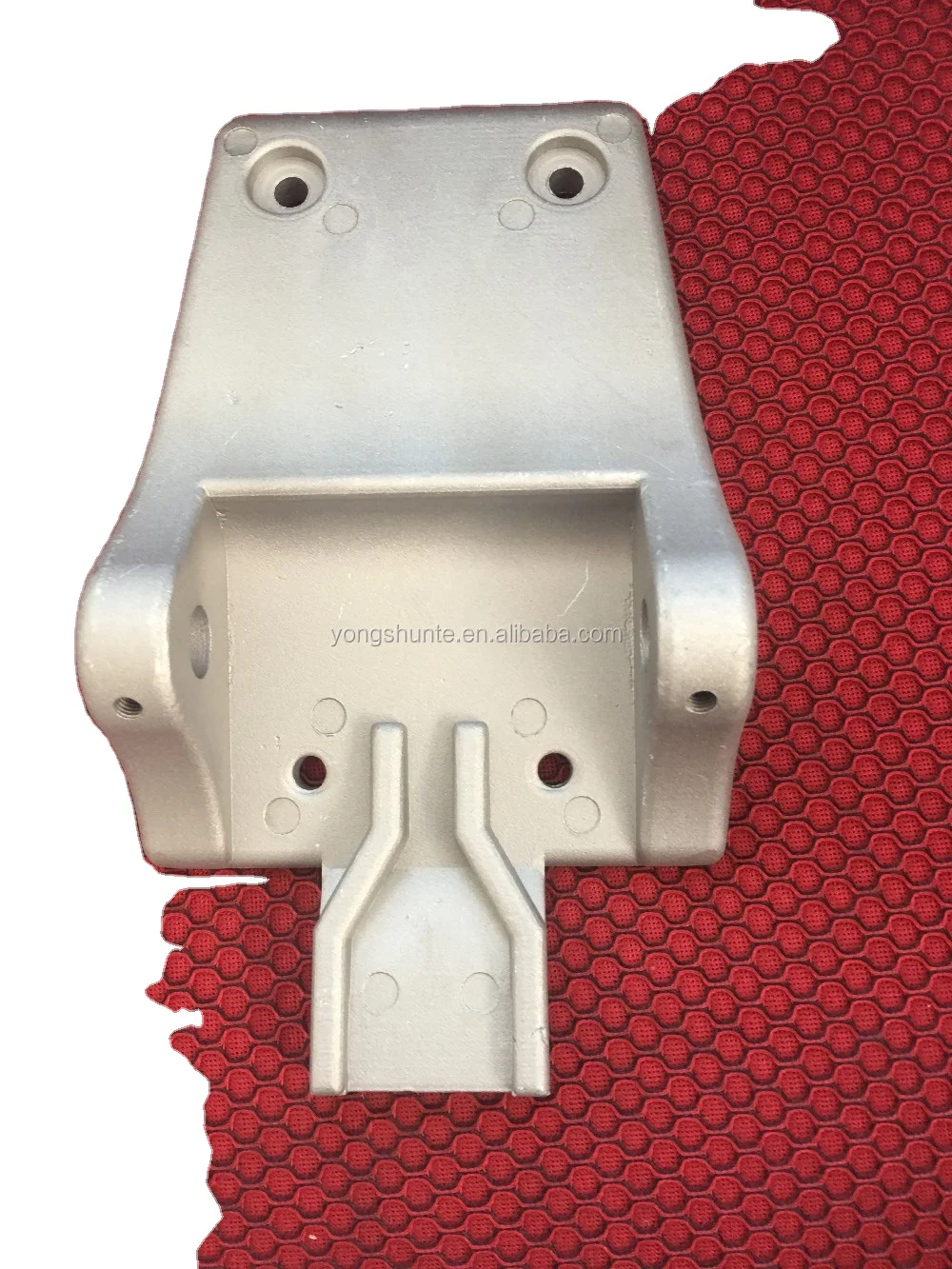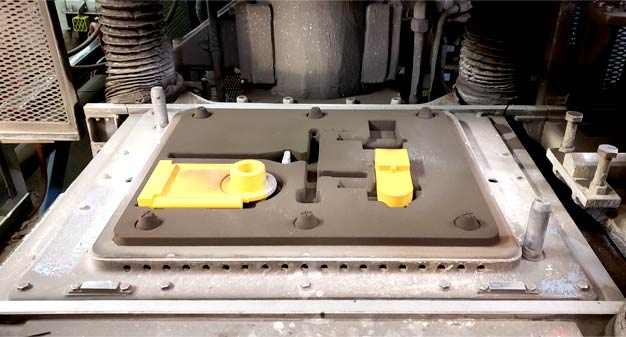The Function of Light Weight Aluminum Foundries ahead of time Lightweight Manufacturing Solutions
Aluminum factories substantially contribute to the evolution of light-weight production solutions. Their innovative casting modern technologies yield high-strength, light-weight elements important for markets such as auto and aerospace. This development not just enhances product performance but likewise promotes sustainability through the usage of recycled materials. As these foundries adapt to arising techniques and modern technologies, they lead the way for future advancements in producing efficiency and environmental responsibility. What exists ahead in this transformative journey?
The Benefits of Lightweight Materials in Manufacturing
As industries progressively seek efficiency and sustainability, the adoption of light-weight products in production has arised as a vital approach - Aluminum Foundry. These materials, especially aluminum and compounds, use numerous benefits that boost manufacturing procedures and item efficiency. Primarily, their reduced weight adds to decrease energy consumption during transport and procedure, leading to substantial expense savings
Furthermore, lightweight products promote the layout of even more facility geometries, enabling higher advancement in item advancement. This versatility typically results in enhanced capability and efficiency, accommodating the developing demands of modern customers.
Furthermore, making use of lightweight products can enhance the longevity of items as a result of their resistance to corrosion and fatigue. This toughness not only reduces maintenance costs yet additionally sustains sustainability campaigns, as longer-lasting products add to much less waste. To summarize, the benefits of lightweight materials are critical in driving performance, development, and ecological duty in manufacturing.
Innovations in Aluminum Spreading Technologies
Current advancements in light weight aluminum spreading modern technologies are revolutionizing the manufacturing landscape, specifically in the manufacturing of light-weight elements. Advancements such as high-pressure die casting and vacuum cleaner die casting have significantly boosted the accuracy and surface finish of aluminum parts - Aluminum Casting Company. These methods enable the development of complicated geometries while minimizing material waste and boosting mechanical buildings

In addition, the execution of real-time surveillance systems guarantees top quality control throughout the spreading procedure, bring about even more constant item results. Collectively, these advancements not just enhance the efficiency of light weight aluminum elements but likewise support the market's shift in the direction of more lasting manufacturing techniques.
Applications of Light Weight Aluminum Components in Numerous Industries
While light weight aluminum parts have long been utilized in numerous sectors, their convenience and light-weight properties remain to drive innovative applications throughout fields such as automobile, aerospace, and construction. In the auto market, aluminum is increasingly utilized for engine blocks, wheels, and body panels, boosting fuel efficiency and efficiency. Aerospace makers take advantage of aluminum for airplane structures and elements, maximizing its strength-to-weight proportion to boost fuel economic climate and payload ability.
In the building field, aluminum is favored for window frameworks, roofing, and architectural elements, supplying longevity and resistance to corrosion while minimizing overall building weight. In addition, the electrical and electronics markets benefit from light weight aluminum's conductivity and lightweight nature, using it in electrical wiring, enclosures, and heat sinks. These diverse applications highlight the critical duty of light weight aluminum components, which not just fulfill market demands however likewise add to improvements in product layout and capability across several fields.
Sustainability and Energy Performance in Aluminum Foundries
The aluminum foundry sector plays a vital function in advertising sustainability and energy efficiency, especially as demand for light-weight components continues to expand across various sectors. Factories are significantly adopting eco pleasant techniques, such as utilizing recycled aluminum, which considerably minimizes energy usage and greenhouse gas discharges compared to primary aluminum production.
Moreover, advancements in casting technologies boost power performance by enhancing the melting procedures and lowering waste. Methods like die spreading and financial investment casting permit specific product usage, decreasing excess and scrap.
In addition, many shops are investing in eco-friendly energy resources to power operations, further lowering their carbon footprint. Carrying out power management systems makes it possible for shops to boost and keep an eye on energy use, ensuring they operate at peak efficiency.

Future Patterns in Lightweight Production Solutions
How will arising modern technologies form the future of light-weight production options? Developments such as innovative products, automation, and additive production are set to redefine manufacturing processes. The assimilation of smart manufacturing innovations, including the Web of Things (IoT) and expert system (AI), will certainly enable real-time surveillance and optimization, enhancing performance and minimizing waste.

As sustainability proceeds to be an extremely important issue, light-weight options will increasingly concentrate on reusing and recycling materials, straightening with round economic situation concepts. This development in light-weight manufacturing will certainly not only enhance item efficiency however likewise add to ecological objectives, making certain that the market remains competitive in a swiftly altering market landscape.
Frequently Asked Questions
Just How Do Light Weight Aluminum Foundries Make Sure Top Quality Control in Manufacturing?
Aluminum shops ensure quality control in production with rigorous testing, standardized treatments, and constant surveillance - Precision aluminum casting. They carry out innovative modern technologies and proficient employees to maintain uniformity, minimize problems, and meet market criteria throughout the production procedure
What Are the Key Tests Encountered by Aluminum Foundries?
Aluminum foundries face obstacles such as rising and fall basic material prices, maintaining production effectiveness, ensuring my website consistent top quality, adapting to technical advancements, and meeting environmental guidelines, all of which influence their overall functional effectiveness and competitiveness in the marketplace.
Exactly How Does Light Weight Aluminum Recycling Influence Foundry Procedures?
Aluminum reusing substantially boosts foundry procedures by lowering basic material costs, minimizing energy intake, and decreasing ecological influence. This sustainable method makes it possible for shops to boost efficiency while satisfying raising demand for lightweight, high-performance aluminum products.
What Abilities Are Required for Workers in Aluminum Foundries?
Employees in light weight aluminum factories call for skills in metallurgy, machining, quality assurance, and safety and security practices. Effectiveness in running equipment, understanding alloy properties, and analytical are likewise important find here for effective manufacturing and maintaining high security criteria.
Just How Do Aluminum Foundries Handle Waste Administration?
Light weight aluminum factories handle waste via reusing scrap steel, using effective waste partition techniques, and adhering to environmental laws. They implement lasting techniques to reduce landfill payments, making sure that hazardous products are disposed of responsibly.
Light weight aluminum shops substantially add to the development of light-weight manufacturing solutions. Current improvements in aluminum spreading innovations are transforming the manufacturing landscape, especially in the manufacturing of lightweight elements. While light weight aluminum parts have actually long been made use of in different industries, their versatility and lightweight buildings continue to drive cutting-edge applications across fields such as vehicle, aerospace, and building. In addition, the electric and electronic devices industries profit from light weight aluminum's conductivity and lightweight nature, utilizing it in circuitry, rooms, and heat sinks. The aluminum factory sector plays an essential function in advertising sustainability and energy effectiveness, particularly site web as demand for light-weight elements continues to grow across numerous industries.